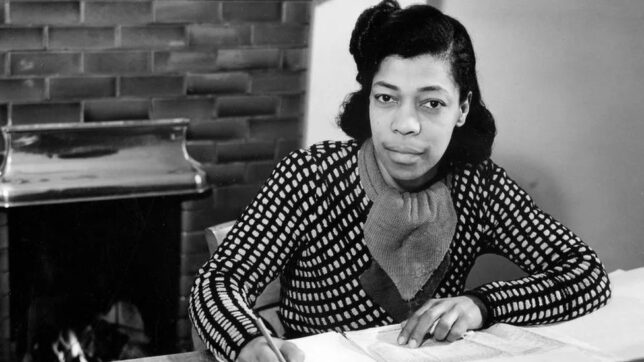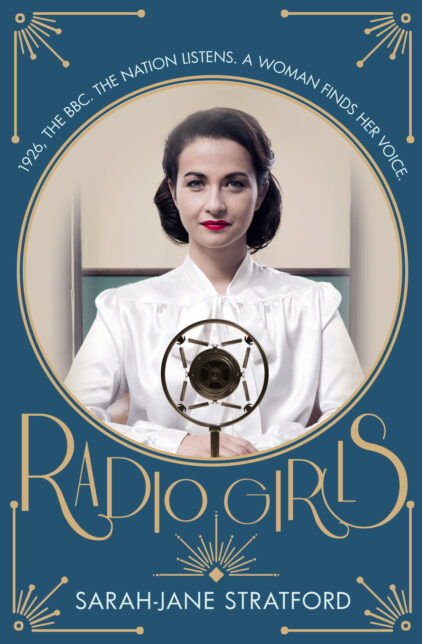Pauline shares what we’ve been reading and chatting about at Story Cafe lately…
Sometimes a Story Cafe idea stems from something Wendy or I have read. A few weeks ago I was browsing the fiction shelves at GWL and came across Radio Girls by Sarah-Jane Stratford and thought I would give it a go. It was a real page-turner, featuring both real life and fictional characters working at the BBC in the 1920s. I passed it to Wendy with the comment that it would make a good Story Cafe. Wendy agreed and she decided to pair it with telling the story of Una Marson who, during the Second World War, was the first Black woman to be employed as a broadcaster and producer at the BBC.

In Radio Girls the main protagonists are the fictional Maisie Musgrave employed as a typist in 1926 at the fledgling BBC, and Hilda Matheson, its first Director of Talks. Hilda, born in 1880, was in MI5 during the First World War and was appointed by the Director John Reith in 1926. She frequently clashed with Reith and resigned in 1932. In 1931 she published a book on broadcasting which was still being used for training purposes in the 1950s.
I read from near the beginning of the novel, Maisie’s first encounter with Hilda, an amusing description of the eccentric, charismatic Hilda and Maisie’s bewildered reaction to this confident, forceful woman who defers to no man and who teaches Maisie so much. I also read a short extract describing the excitement of working in this new medium, which allowed anyone with access to a wireless to listen maybe for the very first time to a symphony, drama, poetry and of course talks on a wide range of subjects. The readings led to us remembering and sharing our early memories of listening to the radio and watching television.

After the break Wendy introduced Una Marson to us by showing us a short video clip about her life and the impact of her work at the BBC. Una was a feminist, poet, playwright, activist and journalist, born in Jamaica in 1905 who spent two periods in the UK and joined the BBC in 1939. In 1941 she started to broadcast in the programme Calling the West Indies. In 1942 she also became its producer when the programme became Caribbean Voices. She returned to Jamaica in 1945 and died there in 1965. She was a true pioneer. Her incredible life and work was recently the subject of a BBC drama, Una Marson: Our Lost Caribbean Voice. The Library is thrilled to have a copy (in our Archive collection) of The life of Una Marson by Delia .Jarrett-MacAuley
We finished with Wendy reading two poems, which capture beautifully what’s so special about radio – Radio Love Poem by Alison Townsend and Radio at Night by Julia Bird.
This was a fascinating glimpse into the early life of the BBC and the work of two pioneering, inspirational women who blazed a trail for the female broadcasters who followed in their footsteps.
Radio Girls by Sara-Jane Stratford and Behind the wireless : a history of early women at the BBC by
Kate Murphy are available from GWL.

Leave a Reply